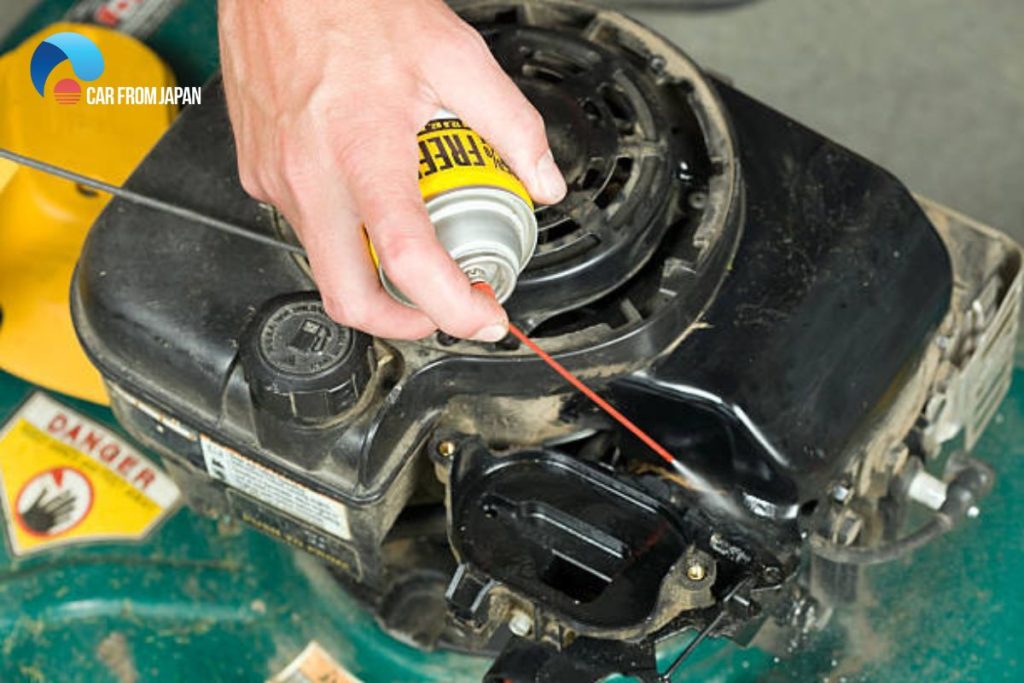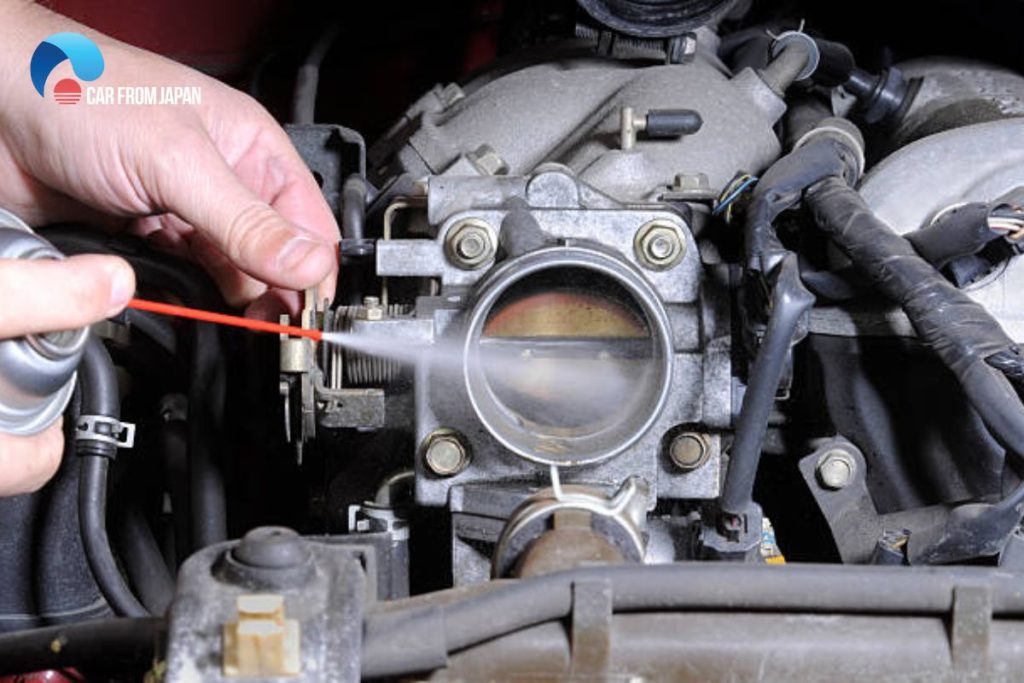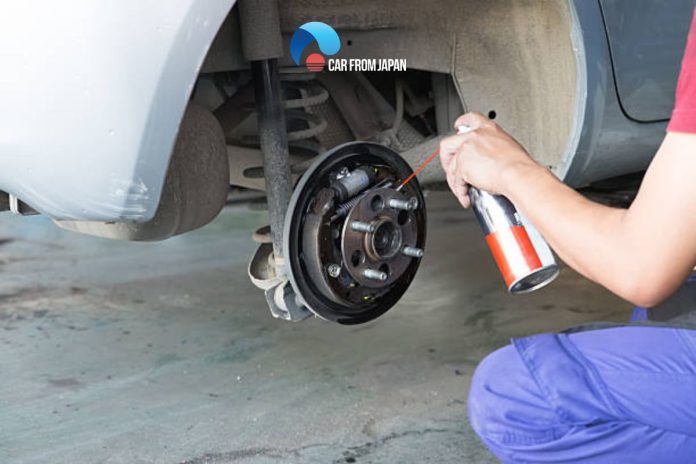Carb cleaner, brake cleaner, and throttle body cleaner all look similar and come in similar spray cans, but they are designed for very different jobs. Each has a unique chemical makeup that makes it perfect for one task and potentially damaging for another. This guide will walk you through the practical differences between carb cleaner vs brake cleaner, and throttle body cleaner, so you can use the right cleaner for the right job.
Contents
Carb Cleaner vs Brake Cleaner vs Throttle Body Cleaner
There are cleaners for every part of the vehicle. While some of the cleaners are general-purpose, some are specific. In case you choose the wrong cleaner for the wrong job, that specific part may lead to damage. This is why you need to know what cleaner to use and when. Read on to get a clearer perspective on the same.
Brake cleaner
Cleaning the brakes using a brake cleaner is obvious, but do you know it can be used for other purposes too? This is one of the best cleaners that can be conferred the status of a multi-purpose cleaner. The best feature of a brake cleaner lies in its fast drying capability. Be it oil, grease, or brake fluid, brake cleaner removes all, and that too effectively.
Brake cleaner is generally available in two versions: chlorinated and non-chlorinated. The chlorinated cleaner is a complete no-no as it is an aggressive chemical blend that can harm one’s health. On the other hand, a non-chlorinated brake cleaner, though not effective, is a preferable option. You may use the spray on anything, as it is safer to use.
Do not use brake cleaners on materials that have a powder coat finish. The powder is liable to get sticky and may ruin the perfect finish.
Carb cleaner

A carburetor, or a carb, is a specialized device that blends in fuel with air within an internal combustion engine. Crab makes sure that the mixture ratio is adequate so that the combustion process is undertaken effectively. Dirt or carbon may sometimes particulate around the device, calling for a cleanup.
This is where a carb cleaner comes into the picture. The cleaner is a violent chemical concoction that aids in eliminating varnish and dirt from the carburetor, inside and out. In case the car’s carburetor is not performing to its expected capacity, giving it a carb cleaner dose is suggested. When it comes to carb cleaner vs brake cleaner, one should know that brake fluid leaves no residue when compared to carb cleaner.
Do not use carb cleaners on painted materials, as the paint will scrape off immediately.
Throttle cleaner
The throttle body is a valve that is positioned between the air intake filter and the intake manifold. The throttle, in simple words, keeps in control the amount of air that enters the engine. Being a prominent part of modern engines, it becomes essential to clean up the throttle body.
The throttle body may develop dirt and debris from the environment. This calls for a cleanup, which, in turn, is a part of preventative car maintenance. It is similar to carb cleaner to an extent, but is restricted to cleaning only the throttle bodies.
Remember not to use throttle cleaners for anything but the throttle body. Refer to maintenance tips for more on cleaners and their respective usage.

What Are The Differences Between Carb Cleaner Vs Brake Cleaner, And Throttle-Body Cleaner?
Here’s a table showing the differences between carb cleaner, brake cleaner, and throttle-body cleaner:
| Cleaners | Carb Cleaner | Brake Cleaner | Throttle-Body Cleaner |
| Purpose | Use for carburetors by dissolving built-up deposits and residue | Cleans brake components by removing brake dust, oil, grease, and other contaminants | For throttle bodies by removing dirt, carbon build-up, and other contaminants |
| Use | Carburetors, jets, needles, and floats | Brake components, such as calipers, rotors, and pads | Throttle bodies, intake valves, and other components |
| Chemical Makeup | Solvents, such as acetone, to dissolve deposits and residue | Solvents: acetone, to dissolve contaminants | Detergents to remove dirt and carbon build-up and solvents |
| Surface Safety | Should not be used on plastic or coated surfaces | Can damage some plastic or rubber components | Safe for use on most surfaces |
| Environmental Impact | Release volatile organic compounds (VOCs) into the air | VOCs into the air | Can release VOCs into the air |
Watch the video to understand more about the difference between cleaners:
Is Carb Cleaner The Same As Brake Cleaner?
Carb cleaners and brake cleaners are similar in the sense that they are both cleaning solvents designed to remove dirt, grime, and other contaminants from surfaces. However, they are not the same and are formulated for different purposes.
Carb cleaner, also known as carburetor cleaner, is specifically formulated to clean and dissolve the built-up deposits and residue that can accumulate inside a carburetor. It is typically used to clean the interior parts of the carburetor, such as the jets, needles, and floats, to improve engine performance and fuel efficiency.
Brake cleaner, on the other hand, is formulated to clean and remove brake dust, oil, grease, and other contaminants from brake components, such as calipers, rotors, and pads. It is used to improve the braking performance of the vehicle by removing any substances that could interfere with the brake components’ operation.
While there may be some overlap in the ingredients used in carb cleaner and brake cleaner, their formulations are not interchangeable. Using the wrong cleaner for the wrong purpose could potentially damage the part being cleaned or lead to unsafe conditions in the case of brakes. Therefore, it is essential to use the appropriate cleaner for the specific purpose for which it is intended.
Conclusion
Ultimately, while carb cleaner, brake cleaner, and throttle body cleaner all come in a similar can, they are not interchangeable. Knowing the practical difference between them is crucial for a successful repair and to avoid damaging your vehicle.
Brake cleaner is for your brakes, carb cleaner is for older carburetors, and throttle body cleaner is the right choice for modern, sensitive throttle bodies. Using the right product for the right job is a simple but important step that can save you time, money, and headaches in the garage.
This is all about carb cleaner vs brake cleaner vs throttle-body cleaners. We hope that the article will be somehow useful for you.




Great write up. Thx
Stan
Atlanta GA